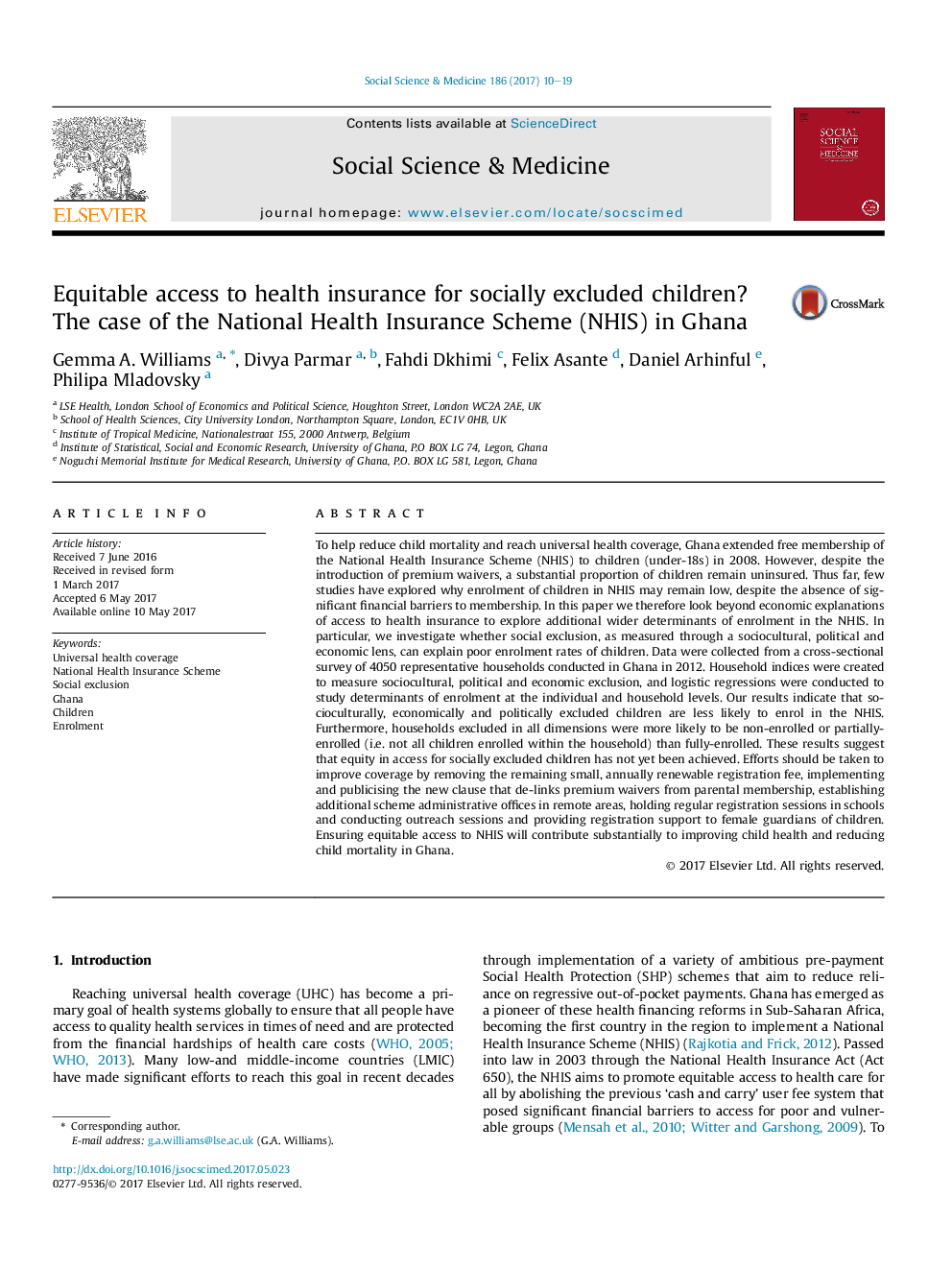| کد مقاله | کد نشریه | سال انتشار | مقاله انگلیسی | نسخه تمام متن |
|---|---|---|---|---|
| 5046378 | 1475983 | 2017 | 10 صفحه PDF | دانلود رایگان |

- Study analyses if social exclusion determines enrolment of children in Ghana's NHIS.
- Removing financial barriers has not promoted equitable enrolment for children.
- Inequitable access for socially, economically and politically excluded children.
- Need to address social, economic and political factors to improve child enrolment.
To help reduce child mortality and reach universal health coverage, Ghana extended free membership of the National Health Insurance Scheme (NHIS) to children (under-18s) in 2008. However, despite the introduction of premium waivers, a substantial proportion of children remain uninsured. Thus far, few studies have explored why enrolment of children in NHIS may remain low, despite the absence of significant financial barriers to membership. In this paper we therefore look beyond economic explanations of access to health insurance to explore additional wider determinants of enrolment in the NHIS. In particular, we investigate whether social exclusion, as measured through a sociocultural, political and economic lens, can explain poor enrolment rates of children. Data were collected from a cross-sectional survey of 4050 representative households conducted in Ghana in 2012. Household indices were created to measure sociocultural, political and economic exclusion, and logistic regressions were conducted to study determinants of enrolment at the individual and household levels. Our results indicate that socioculturally, economically and politically excluded children are less likely to enrol in the NHIS. Furthermore, households excluded in all dimensions were more likely to be non-enrolled or partially-enrolled (i.e. not all children enrolled within the household) than fully-enrolled. These results suggest that equity in access for socially excluded children has not yet been achieved. Efforts should be taken to improve coverage by removing the remaining small, annually renewable registration fee, implementing and publicising the new clause that de-links premium waivers from parental membership, establishing additional scheme administrative offices in remote areas, holding regular registration sessions in schools and conducting outreach sessions and providing registration support to female guardians of children. Ensuring equitable access to NHIS will contribute substantially to improving child health and reducing child mortality in Ghana.
Journal: Social Science & Medicine - Volume 186, August 2017, Pages 10-19